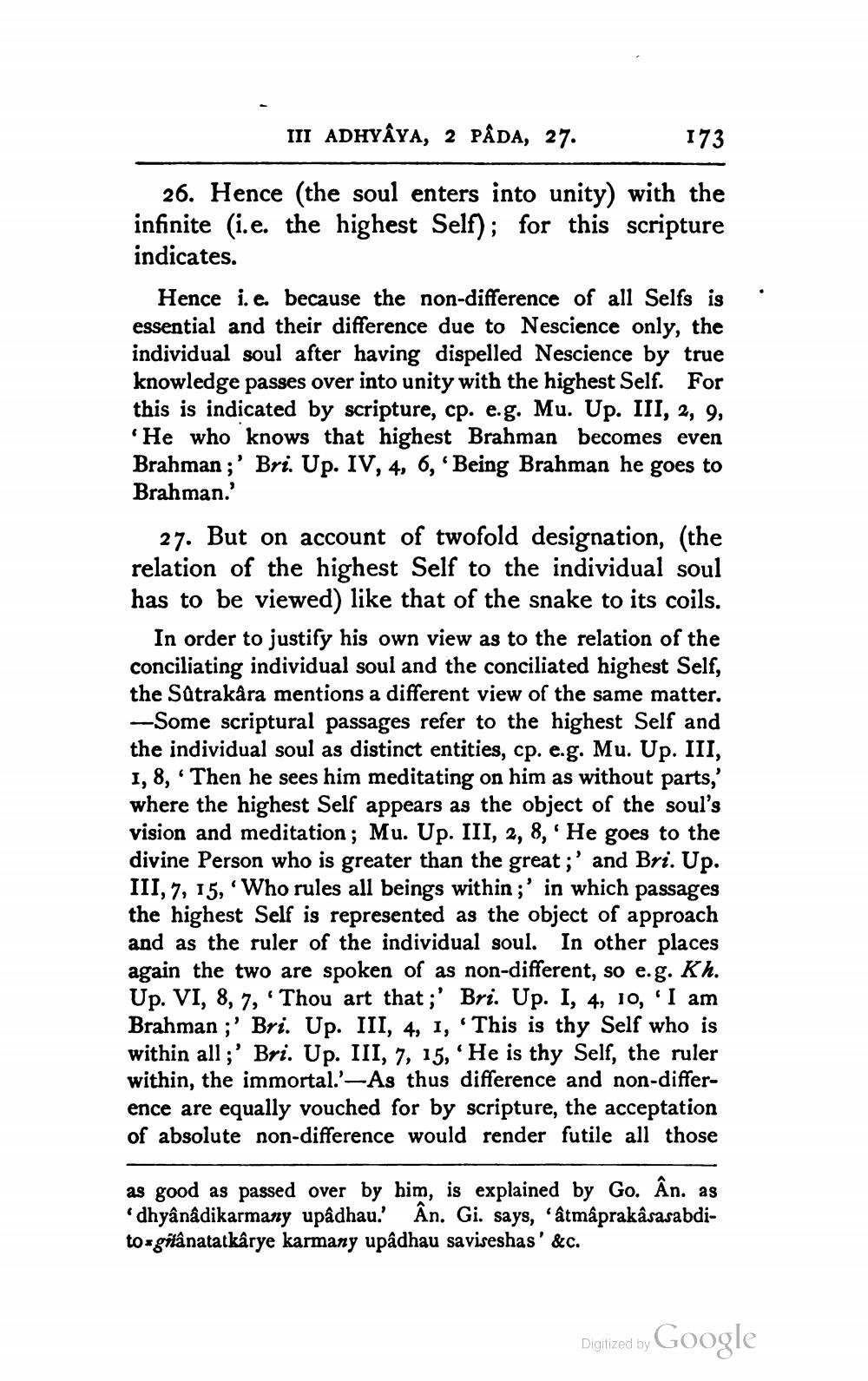________________
III ADHYAYA, 2 PÂDA, 27.
173
.
26. Hence (the soul enters into unity) with the infinite (i.e. the highest Self); for this scripture indicates.
Hence i.e. because the non-difference of all Selfs is essential and their difference due to Nescience only, the individual soul after having dispelled Nescience by true knowledge passes over into unity with the highest Self. For this is indicated by scripture, cp. e.g. Mu. Up. III, 2, 9, "He who knows that highest Brahman becomes even Brahman ;' Bri. Up. IV, 4, 6, 'Being Brahman he goes to Brahman.'
27. But on account of twofold designation, (the relation of the highest Self to the individual soul has to be viewed) like that of the snake to its coils.
In order to justify his own view as to the relation of the conciliating individual soul and the conciliated highest Self, the Satrakâra mentions a different view of the same matter.
-Some scriptural passages refer to the highest Self and the individual soul as distinct entities, cp. e.g. Mu. Up. III, 1, 8,Then he sees him meditating on him as without parts,' where the highest Self appears as the object of the soul's vision and meditation; Mu. Up. III, 2, 8, 'He goes to the divine Person who is greater than the great;' and Bri. Up. III, 7, 15, Who rules all beings within ;' in which passages the highest Self is represented as the object of approach and as the ruler of the individual soul. In other places again the two are spoken of as non-different, so e.g. Kh. Up. VI, 8, 7, Thou art that;' Bri. Up. I, 4, 10, 'I am Brahman;' Bri. Up. III, 4, 1, 'This is thy Self who is within all;' Bri. Up. III, 7, 15, 'He is thy Self, the ruler within, the immortal.'-As thus difference and non-difference are equally vouched for by scripture, the acceptation of absolute non-difference would render futile all those
as good as passed over by him, is explained by Go. Ân. as
dhyânâdikarmany upâdhau.' Ân. Gi. says, 'âtmâprakâsasabdito gitânatatkârye karmany upadhau sa viseshas' &c.
Digitized by
Digized by Google




